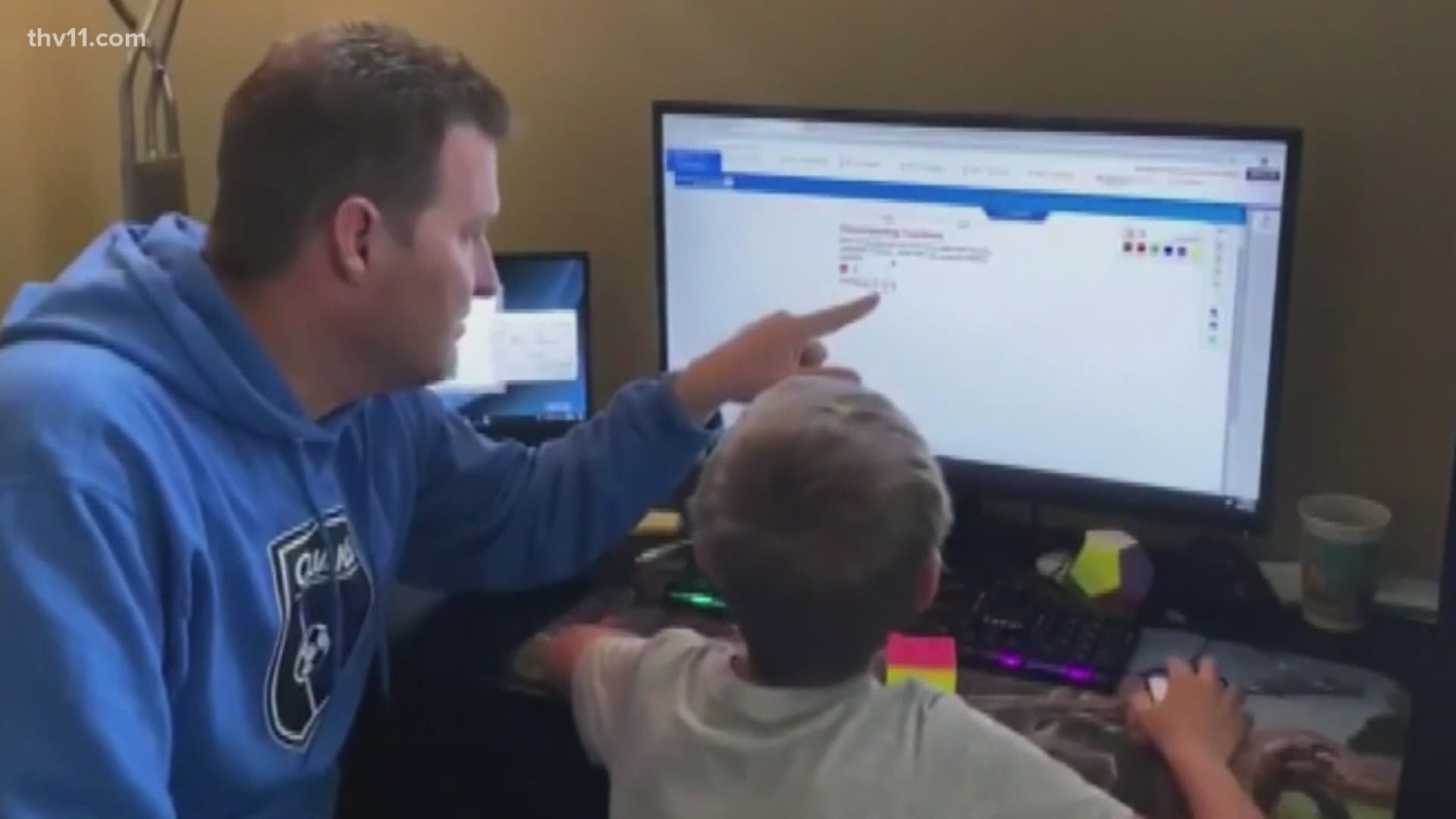LITTLE ROCK, Ark. — The shift to online learning brought on by the coronavirus pandemic has parents everywhere realizing how much they need help and how much their kids could use a tutor.
An Arkansas non-profit, with help from the Walton Family Foundation, is set to offer a solution where money won't be an obstacle.
"Free. F-R-E-E, free," said Dr. Dionne Jackson, the executive director of AR Kids Read, on the cost to families who sign up for the tutoring program.
The literacy-focused organization is branching out to other subjects and teaming up with the Central Arkansas Library System to match troops of volunteer tutors with families looking for help.
"They can click on the tab for tutoring and there they can register a student to be placed on our list for tutoring," Dr. Jackson said, referring to the website ArKidsRead.org.
The grants arrived after both CALS and AR Kids Read began virtual programs last spring, brought on by the pandemic. The foundation established by the heirs to the Walmart fortune dedicates much of its philanthropy to improving education. After surveying parents of all income levels in Little Rock and Pulaski County, they pushed $500,000 to expand the tutoring concept.
"This is one of the first times that we've had a more organized effort to connect tutors and students," said Ellen Samples, the youth services coordinator for CALS. "Through our website, people will be able to log on and get sort of one-on-one virtual help from a real, live tutor."
The programs will service all subjects and be available for all ages and feature both humans and computers able to help with homework. Volunteers can sign up and partnerships with college teaching programs are expected to bring instructors into the program.
The whole concept sells itself, even with the free price tag, if you've spent any time trying to navigate the new school landscape.
"We've had great success with it this summer. One hundred percent of our parents were very pleased with the experience their kids had, so we're excited to take this to another level," Dr. Jackson said.
The fall term begins October 19, and will last eight weeks. Students who miss that first term can try again for winter, spring, and summer programs.
CALS also plans to build on the virtual effort and have in-person offerings once the virus calms down.

